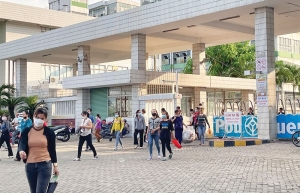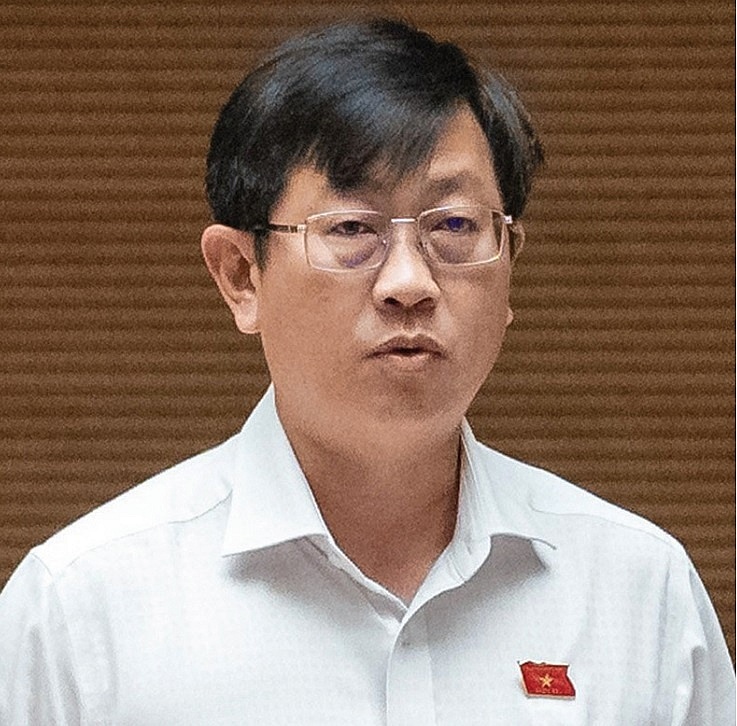Options outlined for foreign privileges in trade unions
Under the amended Law on Trade Unions currently under the National Assembly’s (NA) discussion, when it comes to foreign employees’ right to access to a trade union (TU) in Vietnam, the draft amendments introduce two options for Article 5.
 |
| Employees of foreign-invested companies may already be protected by parent firms overseas |
Under the first option, foreign employees have the right to join and implement activities in TUs, but are not allowed to establish one or act as a cadre, and only implement activities at primary TUs. Meanwhile, under the second option, foreign employees are banned from establishing, joining, and conducting related activities, as the existing regulations under the 2012 Law on Trade Unions stipulate.
“The majority of comments favour the first option, but some are showing their concerns about that if foreign employees are allowed to join and conduct TU activities, it could become a sensitive issue. If not well managed, there will be complicated issues on security, politics, and social order,” said a Vietnam General Confederation of Labour (VGCL) report on the draft amendments submitted to the NA. “The VGCL proposes that the first option should be taken.”
VGCL chairman Nguyen Dinh Khang told the NA, “We know that this is a complicated issue, so we have to make two options for selection. The VGCL has sought ideas and comment from all relevant agencies and authorised ones to make impact assessment in security and politics.”
In the existing Law on Trade Unions, a TU is an organisation which represents the Vietnamese employees to protect their rights and interests. An internal TU can be established at the workplace if there are at least five Vietnamese employees who wish to organise it. The employer must facilitate establishment, and a foreign employee cannot be a member of a TU.
The employer is also required to make contributions of TU fees regardless of whether an internal TU is established. The rate of contribution by the employer is 2 per cent of the employee’s salary. A Vietnamese employee who is a member of an internal TU must contribute to TU fees at least 1 per cent of his/her basic salary.
The National Assembly Committee for Social Affairs may not favour the first option. “It is suggested that the compiling board clarify the reason why foreign employees can become TU members,” the committee said. “How are the VGCL and the trade union levels ready to allow foreign employees to do so? What are the experiences of other nations in this regard, especially countries having the political, social, and cultural situation similar to Vietnam?”
At present, about 91,000 foreigners are working officially in Vietnam, mostly in foreign-invested enterprises. However, many NA deputies like Ha Hong Hanh representing the south-central province of Khanh Hoa have given the thumb-ups to foreign employees being able to participate in trade unions in Vietnam.
Hanh explained that in the context of intensive international integration, Vietnam has participated in many free trade agreements and more than 50 other multilateral and bilateral deals.
“Besides that, if we allow them to join TUs in the country, it will be a suitable move as it will help meet their demands, while also helping to ensure the consistency in the country’s law system,” Hanh said. “However, to make this move effective, it would need thorough assessments of impacts on security, politics, and social order. It is also needed to consider differences in language and culture or to mull over specialised regulations for foreign employees to perform TU activities.”
NA deputy Au Thi Mai representing the northern province of Tuyen Quang also underlined the need for foreign employees to be allowed to join TUs.
“I agree with the first option under Article 5. This will help ensure the equality in TU rights between Vietnamese employees and foreign ones, and also ensure the unity of laws and the law systems. This will also make it more favourable for protecting the legitimate rights and benefits of all employees.”
Mai also recommended that the compiling board consider the fact that if foreign employees were allowed to participate in TUs, they would still face some hurdles.
“For example, their work permit time-limit is not long – only two years. How can TUs protect them if their work permits and certificates become invalid without being extended? Also, language barriers will make it difficult for TU cadres to understand their feelings and requirements and then to protect their interests,” Mai said.
However, Nguyen Thanh Nga, head of human resources at a Sweden-invested logistics company with headquarters in Hanoi, said the issue was “unimportant”.
“Most foreign employees are from foreign-invested enterprises, and they are protected by their foreign leaders, who can provide them all conditions for performance. Therefore, it might be meaningless if the revised law gives them a right to join TUs,” Nga said.
Do Thi Minh, vice head of human resources at a Taiwanese-Vietnamese garment and textile joint venture based in the northern province of Hung Yen, also said that the new regulations seemed unnecessary.
“Unlike Vietnamese people, foreigners often voice their ideas to their managers immediately when they face a problem, and their questions can be quickly responded to,” Minh said. “They also have their own interests protected by their parent companies overseas, such as insurance, bonuses, and allowances, among others.”
| Nguyen Thi Viet Nga, NA deputy, Hai Duong province
Many NA deputies are interested in whether the new law will provide the right to participate in TUs for foreign employees or not, and many of them favour the first option. Such employees should be allowed to join TUs if their labour contracts are at least 12 months long. This is a humane move, creating equality between Vietnamese and foreign labourers. It will also help Vietnam attract more high-quality labourers and increase the country’s international prestige in ensuring the legal rights and interests of foreign employees. Thus, this will also help create a principle of reciprocity in diplomatic relations. When Vietnam does that, other nations may also follow suit or apply other solutions to protect the legal right and interest of Vietnamese people working in their territories. Compared to 2012, the current context of developing the Law on Trade Unions is different. Vietnam’s international integration has deepened, with language and cultural barriers having gradually been narrowed as intellectual levels have also increased. The development of AI and cultural exchanges through digital technology and global social networks have been flourishing, along with new legal regulations on foreign labour management in Vietnam having been issued. Allowing foreign employees to join TUs is suitable to the 2019 Labour Code and rules regulating foreign workers working in Vietnam and recruiting them. Therefore, the previous reasons for disapproval of allowing foreign employees to join TUs are no longer big problems. Nguyen Huu Thong, NA deputy, Binh Thuan province
We need to analyse and evaluate more carefully the conditions of resources, leadership methods, and direction of TUs towards foreign employees. We also need to consider the equality in differences between Vietnamese and foreign employees in exercising TU rights and obligations. Specific characteristics of exercising the rights and obligations of these groups of workers must be evaluated. At the same time, we should propose solutions to limitations, inadequacies, language and cultural barriers, and more to properly and fully convey their requirements to the authorities when organising a TU and protecting their rights and interests. It is necessary to calculate the minimum number of years, which could be 3-5 years, for foreign workers living and working in Vietnam to have the right to join a TU. This is aimed at prescribing a minimum number of years for foreign workers to have time to learn, research, and gain more knowledge about our law, language, culture, religion, and politics. From there, joining TUs will truly bring benefits to workers and promote the role and responsibilities towards employees, or we can choose the option of pilot application in some areas or localities from which to draw practical experience and then replicate it if it is truly effective. |
 | Employees at risk of losing livelihoods A number of foreign enterprises have had to make tough decisions to let go of workers due to the gloomy business situation and a sharp decline in orders. |
 | Bayer Vietnam employees take up community work Bayer Vietnam is giving back to the community by implementing a series of corporate social responsibility activities. |
 | Foreign-invested enterprises in Bac Giang to recruit thousands of employees Several foreign-invested enterprises in the northern province of Bac Giang want to recruit dozens of thousands of employees to expand their operations. |
What the stars mean:
★ Poor ★ ★ Promising ★★★ Good ★★★★ Very good ★★★★★ Exceptional
Related Contents
Latest News
More News
- PM outlines new tasks for healthcare sector (February 25, 2026 | 16:00)
- Ho Chi Minh City launches plan for innovation and digital transformation (February 25, 2026 | 09:00)
- Vietnam sets ambitious dairy growth targets (February 24, 2026 | 18:00)
- Masan Consumer names new deputy CEO to drive foods and beverages growth (February 23, 2026 | 20:52)
- Myriad risks ahead, but ones Vietnam can confront (February 20, 2026 | 15:02)
- Vietnam making the leap into AI and semiconductors (February 20, 2026 | 09:37)
- Funding must be activated for semiconductor success (February 20, 2026 | 09:20)
- Resilience as new benchmark for smarter infrastructure (February 19, 2026 | 20:35)
- A golden time to shine within ASEAN (February 19, 2026 | 20:22)
- Vietnam’s pivotal year for advancing sustainability (February 19, 2026 | 08:44)



 Tag:
Tag:
















 Mobile Version
Mobile Version